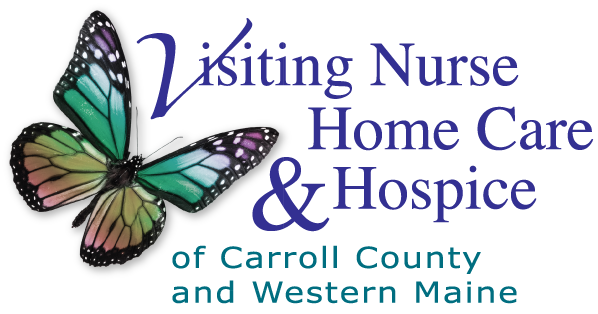Visiting Nurse Home Care & Hospice Invests in Technology, Training and Resources to Support Nursing Assistant
June 24, 2022
)
National Nursing Assistants Week takes place every June and is dedicated to recognizing the efforts of Nursing Assistants – LNAs (Licensed Nursing Assistants) and CNAs (Certified Nursing Assistants). With much of its patient care provided by these dedicated professionals, Visiting Nurse Home Care & Hospice recently announced new efforts to recruit and train LNAs through the use of cutting-edge technology and training programs.
Proof positive of this effort is the recent investment in a patient simulation lab, a new technology to train LNAs and other staff members. It is designed to allow newly licensed LNAs to get the hands-on practical experience they need to ensure the highest quality of care for home healthcare patients.
The centerpiece of the lab is a life-like geriatric manikin, TERi. It has soft silicone skin with natural body movements, adding to its realism. LNAs will be able to perform the spectrum of clinical tasks using the simulation manikin.
TERi can mimic the full experience – from intubations for ventilator training and auscultation with heart and lung sounds to CPR resuscitations. Even patient vital signs and monitored signals can be replicated.
VNHCH just completed a successful fundraising campaign to purchase this simulator, which cost over $20,000. It was made possible through generous donations from the Gibson Woodbury Charitable Foundation and the Cogswell Benevolent Trust.
Executive Director Sandy Ruka stated, “We are so grateful to the foundations and donors who donated generously to this effort. We would be unable to offer this asset to our employees and our community without their support.”
TERi made its debut at the agency’s June 2022 Skills Day, a twice-yearly training workshop for LNAs.
Ashlee Chaine, Long Term Care and Social Services Coordinator, explained that the purpose of Skills Day is to make sure that everyone is up to date on their routine skills used every day in the field and to develop new skills. Ashlee added, “In the past we’ve done training with ostomy appliances and used realistic simulations for simple wound care, transferring, dressing, and vital signs. We unveiled TERi this June to use very realistic simulations for mimicking different blood pressure and various heart rates for aides to test their skills.”
Ashlee explained the extensive list of training that TERI makes possible for LNAs and , including realistic catheter cleaning, catheter bag changes, giving bed baths, checking all types of vital signs and teaching injections. Since 2021, LNAs can now give vaccinations. VNHCH already has one LNA who wants to train in this and is working with an RN for to be ready for fall vaccinations.
It’s not just LNAs who can utilize TERi. It also allows nurses to undergo advanced training, such as placing ostomies and catheters. TERi has a specialized arm to allow vein puncture and realistic lab draws.
VNHCH is also investing in LNA training and certification. Using ARPA (American Rescue Plan Act) funding, VNHCH has set aside funds to cover the costs for an existing staff member or community member to become LNA certified. Those receiving the grant would agree to a commitment to work for the agency for a period of time.
VNHCH’s Kim Seamans-Grace became an LNA three years ago, after deciding on a career change after many years as a school teacher. Growing bored with videos and online training, she asked Ashlee Chaine about other options that were more hands-on. That’s when discussions about TERi began in earnest. Chaine lobbied for grant funding for the patient simulator, knowing that it would be an invaluable training resource for LNAs. Kim said, “Ashlee listened and responded. She’s always about our morale and what she can do for us.”
TERi is expected to be especially important to new LNAs who underwent all of their training during COVID when in-person clinical training was not possible. Kim explained, “We had some LNAs who were fresh and had done most of their training online, so they were not exposed to things like ostomy care. TERi is going to be great for them.”
Kim praised the VNHCH work environment as being supportive for LNAs. “The nurses and therapists that I meet in the field are exceptional at helping to guide us to care for each client. LNAs are included from the get go. You are part of the team. It’s not like that at every agency!”
Chaine goes on to state, “Frequently the administrators and clinicians praise the work of our LNA and Homemaking staff. It is often said they are the most important asset our agency has. They are the eyes and ears for clinicians between visits. Their personal relationship with our clients is the true heart of the care we provide. We appreciate all that they do every day. Without them we would be lost.”
For more information about LNA careers at VNHCH, visit their website www.vnhch.org/jobs, or call 603-356-7006.
